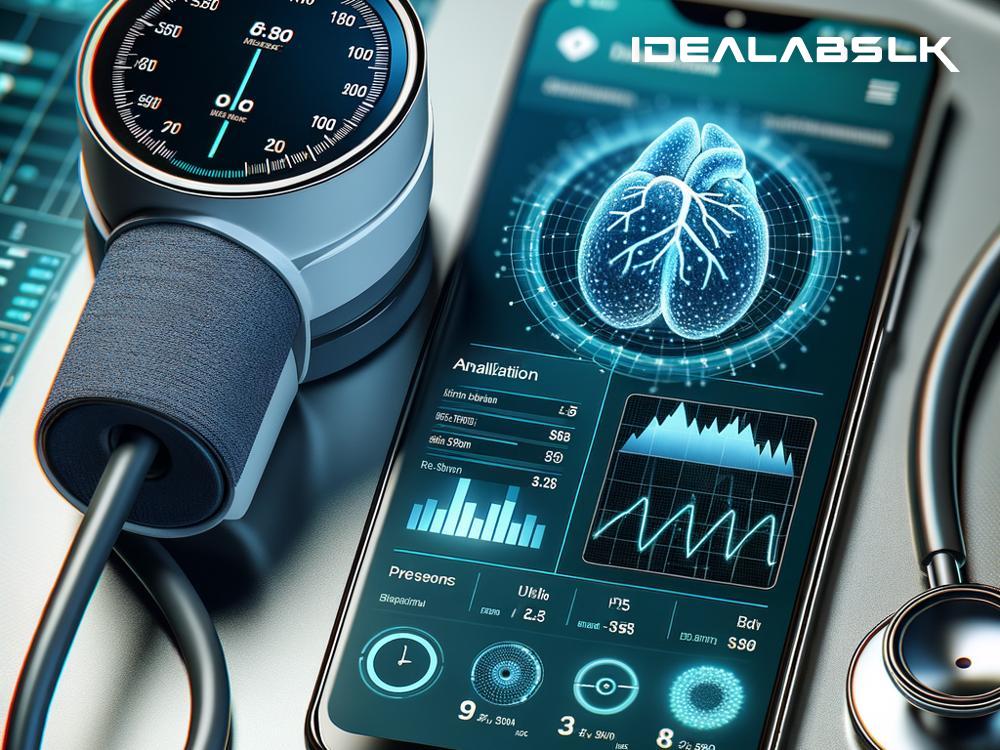The Smart Upgrade: How AI is Making Blood Pressure Monitors More Reliable
Gone are the days when blood pressure checks were only possible in a doctor’s office with those bulky arm cuffs and the suspenseful wait as the air hissed out. Now, we can monitor our blood pressure from the comfort of our homes - thanks to the compact and user-friendly devices available. But there's an even bigger game-changer enhancing the accuracy of these devices: Artificial Intelligence (AI).
Before diving into how AI is revolutionizing blood pressure monitoring, let's have a quick refresher on why accurate readings matter. Blood pressure readings can be life-saving. They help in detecting conditions like hypertension early on, which might otherwise go unnoticed until they lead to serious complications. Accuracy is key because both overestimating and underestimating these measurements can lead to incorrect treatments or missed diagnoses.
However, measuring blood pressure isn't always straightforward. It can be influenced by various factors like how you position your arm, the time of day, or even stress levels. That’s where AI steps in, making our gadgets smarter and our readings more accurate. So, how does AI do its magic? Let’s break it down.
1. Personalization: The New Standard
AI brings in a personalized touch. It learns from your previous readings, considering various factors like your normal blood pressure range, daily routines, and even fluctuations caused by stress or meals. Imagine having a smart assistant that reminds you to relax and take a deep breath before measuring or gives advice on the best time for a reading. That's AI - making your device more in tune with you.
2. Reducing Human Error
One common issue with traditional devices is the margin for human error – like not positioning the cuff right. AI-enhanced devices guide users step-by-step, ensuring correct usage. Some devices even employ sensors that can detect when the conditions aren't ideal for a measurement, prompting the user to adjust. This drastically reduces chances of error, giving way to more accurate readings.
3. Advanced Algorithms: The Heart of AI
At the heart of AI are algorithms – sets of rules or instructions the technology follows. These algorithms are designed to analyze data far more intricately than ever before. In the context of blood pressure monitoring, algorithms can distinguish between a one-off high reading due to a stressful day and a genuine trend towards hypertension. By doing so, AI provides a more accurate picture of your heart health over time.
4. Prediction and Prevention
Perhaps the most groundbreaking aspect of AI in this field is its predictive capabilities. By analyzing your readings over time, AI can identify patterns that may signal the onset of health issues. It’s like having a weather forecast for your health, enabling preventive measures even before a storm hits.
5. Interconnectivity and Sharing
In today’s interconnected world, AI also facilitates easier sharing of your blood pressure data with healthcare providers in real-time. This means your doctor can monitor your readings remotely, making adjustments to your care plan without needing you in the office for every check. It enhances the continuity of care, especially for chronic conditions, making management easier and more personalized.
Embracing AI for Heart Health
The introduction of AI into blood pressure monitoring devices is transforming how we approach heart health. It’s making self-care more intuitive, personalized, and importantly, more accurate. But remember, while these AI-enhanced devices offer incredible benefits, they're tools to complement professional medical advice, not replace it. Consistently sharing your AI-gathered data with your healthcare provider can offer a more comprehensive understanding of your heart health.
In conclusion, AI is not just a tech buzzword but a real force for good in enhancing the accuracy of blood pressure monitoring devices. It represents a leap towards more precise, personalized, and preventive healthcare. As technology advances, we can only expect these devices to become even smarter, turning the once cumbersome task of monitoring blood pressure into a seamless, insightful component of everyday health management.
The future is here, and it’s intelligent. With AI, we’re not just monitoring our blood pressure; we’re ahead of the curve in understanding and managing our heart health. Embrace the smart upgrade and let AI be your ally in keeping your heart beating strong and healthy.

